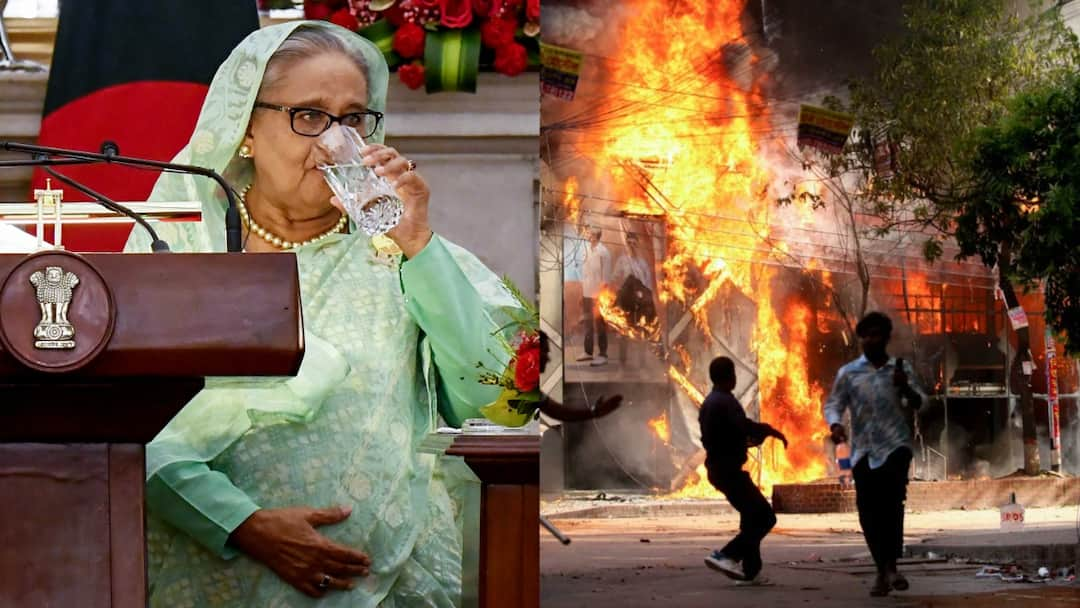After being ousted as Prime Minister, Sheikh Hasina has been sentenced to death by a Bangladesh tribunal that found her guilty of crimes against humanity linked to last year’s student protests. The tribunal examined a series of charges related to the unrest that began in July and ultimately culminated in her removal from office on 5 August 2024. According to the order read out by judge Golam Mortuza Mozumder, the former PM was convicted of incitement, issuing orders to kill, and failing to prevent the violence. The verdict marks one of the most consequential rulings in Bangladesh’s recent political history.
Court Cites Orders’ Behind Protest Killings
In its written order, the tribunal stated that Hasina was fully aware of the killings carried out during the protests and had authorised actions that resulted in loss of life. “These killings happened under the orders and full knowledge of PM Sheikh Hasina. By such acts, they committed crimes against humanity,” the charges read.
VIDEO | Dhaka: A Bangladesh court finds ousted PM and Awami League leader Sheikh Hasina guilty of crimes against humanity.
“…Sheikh Hasina has committed crimes against humanity. Six protesters at Chankharpul were killed using lethal weapons on August 5. By issuing orders and… pic.twitter.com/7Ql1aYFMlT
— Press Trust of India (@PTI_News) November 17, 2025
The ruling is expected to shape Bangladesh’s political landscape, intensifying debate over the legality, motivation and broader implications of the tribunal’s decision. With Hasina now facing a death sentence, the case continues to generate sharp domestic and international scrutiny
Court Convicts Hasina On charges Of Crimes Against Humanity
The tribunal’s findings centred on Hasina’s alleged role during the student uprising that gripped Bangladesh from July last year. Prosecutors argued that she had both knowledge of and authority over the actions taken by state forces during the unrest. The tribunal accepted these arguments, concluding that Hasina had issued directives that enabled the killings and that she did not act to stop the violence as it escalated.
Judge Golam Mortuza Mozumder detailed the specific charges under which Hasina was convicted, including incitement, order to kill, and inaction to prevent atrocities. She was found guilty of committing crimes against humanity during the protests that swept the country and ultimately led to her downfall. The tribunal emphasised that her failure to intervene, coupled with her alleged orders, placed responsibility for the atrocities squarely on her leadership.



